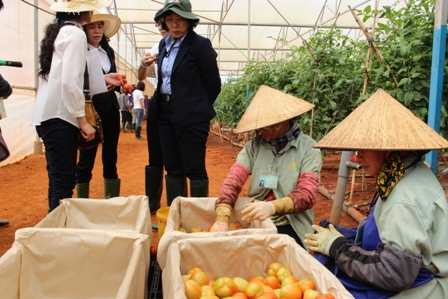Vietnam spends up to around USD500 million annually on importing plant varieties despite having many agricultural research institutes.

None of the universities and research institutes in HCM City had produced a single new plant variety over the past year
The HCM City Department of Agriculture and Rural Development recently held a conference discussing the application of scientific and technological achievements in the city’s agricultural development.
Speaking at the event, Dr. Duong Hoa Xo, deputy director of the department, said that over the whole decade, none of the universities and research institutes in HCM City had produced a single new plant variety.
Meanwhile, during the phase, the Institute of Agricultural Science for Southern Vietnam has mostly focused on the development of the current varieties such as rice, cashew and corn.
Each year, Vietnam spends around USD500 million on importing plant varieties of different kinds, including USD70 million on vegetable varieties despite the multitude of universities and research institutes related to agriculture, Xo added.
In the first quarter of this year, Vietnam imported more than 4,800 plant varieties, including 220 tonnes of rice, with the majority from China.
Prof. Dr. Bui Chi Buu, former head of the Institute of Agricultural Science for Southern Vietnam, said that the Vietnamese government allocates only around VND600 billion (USD27.2 million) annually for plant variety research institutes with half of this used for paying salaries.
HCM City has more than 200 companies which specialise in researching, trading, importing and exporting plant varieties. But most of these firms have to hire land in southeastern and Mekong Delta localities, which has raised their operational costs.
To Thanh Trung, director of Trang Nong Seed Ltd. Co., said that only state-owned company had land for seedlings production, but private firms do not. Meanwhile, under the law, agricultural land trading is banned, so they have to hire land.
Many companies in HCM City want to hire land for 20-50 years, but complicated procedures discourage them.
At the meeting, HCM City Party Secretary Nguyen Thien Nhan called for measures to turn HCM City into the country’s centre of plant variety production and supply.
Nhan said that up to 55% of HCM City’s land is for agricultural production, and questioned why firms were struggling to find land.
He requested municipal authorities to quickly provide seedlings companies with land to lease.
Nhan also noted that HCM City needs to study plant varieties which can adapt to climate change.
dtinews